Timeline
August 15, 1924
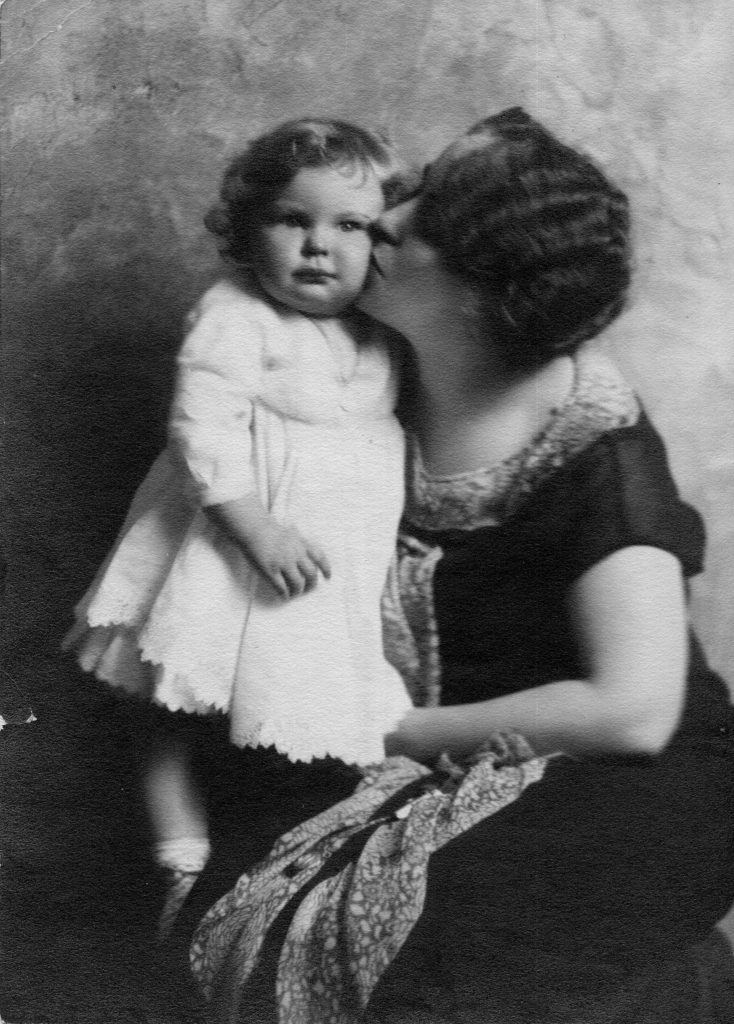 Phyllis MacAlpin Stewart was born in Saint Louis, Missouri, to John and Odile Stewart on August 15, 1924. John was an engineer and salesman. When the Great Depression brought hard times to the Stewarts, Odile took a job as a librarian and school teacher.
Phyllis MacAlpin Stewart was born in Saint Louis, Missouri, to John and Odile Stewart on August 15, 1924. John was an engineer and salesman. When the Great Depression brought hard times to the Stewarts, Odile took a job as a librarian and school teacher.
1940s
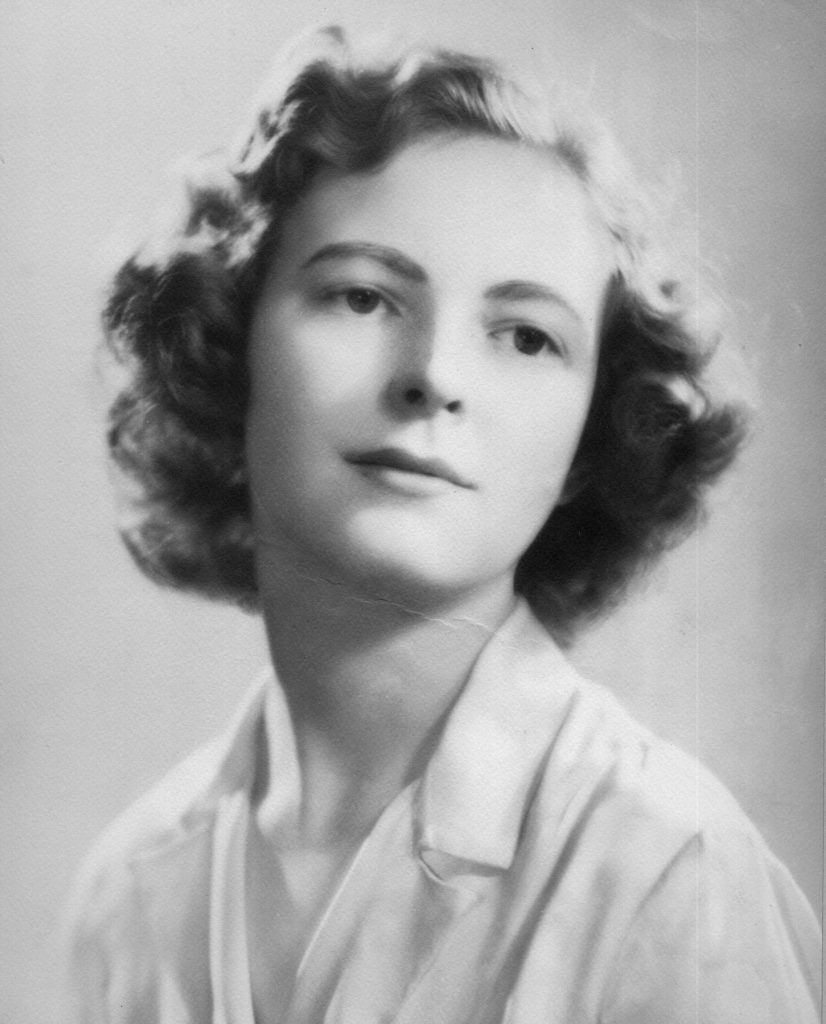
Phyllis obtained a Bachelor of Arts degree from Washington University and a Master of Arts degree from Radcliffe. While going to school full time, she also worked nights as an ammunition tester at a munitions factory during World War II.
1946

Phyllis began her work in politics on Claude Bakewell’s successful campaign for the U.S. House of Representatives, District 11 of Missouri.
October 20, 1949

Phyllis married Fred Schlafly on October 20, 1949. They worked together on many important projects, such as Fred’s “American Bar Association’s Report on Communist Tactics, Strategy, and Objectives” in 1957.
1952 & 1970
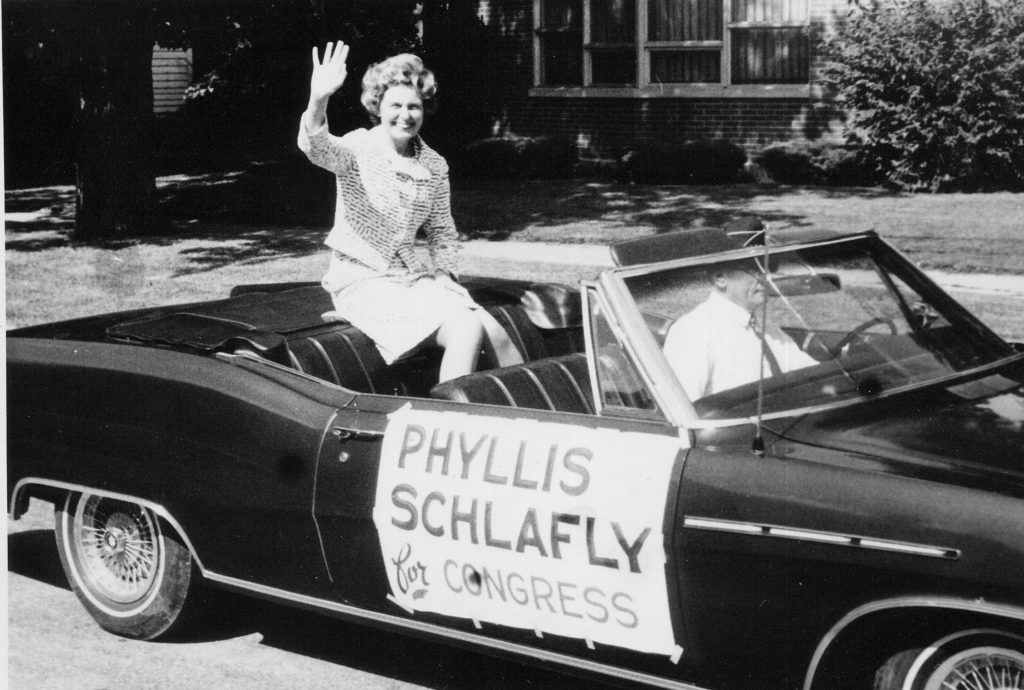
Phyllis ran for U.S. Congress twice, in 1952 and 1970.
1964
 Phyllis wrote her first book in 1964. A Choice Not An Echo exposed a cabal of elites who control Republican nominations to the presidency. She called them “kingmakers.” Today, we’d call them the “Establishment.” The self-published book was so popular that Phyllis sold three million copies and distributed them from her garage.
Phyllis wrote her first book in 1964. A Choice Not An Echo exposed a cabal of elites who control Republican nominations to the presidency. She called them “kingmakers.” Today, we’d call them the “Establishment.” The self-published book was so popular that Phyllis sold three million copies and distributed them from her garage.
1950s - 1960s
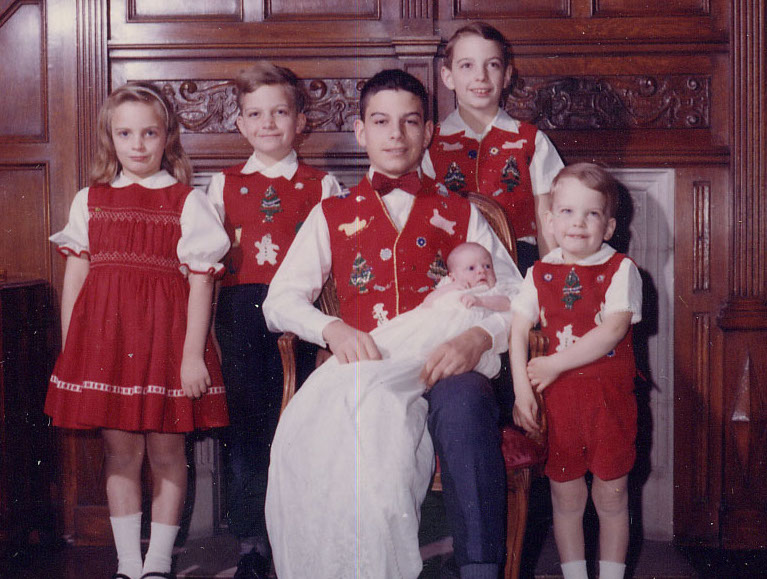
Phyllis and Fred had six children. Phyllis said that the most rewarding thing she ever did was teach all her children how to read.
1952-2016
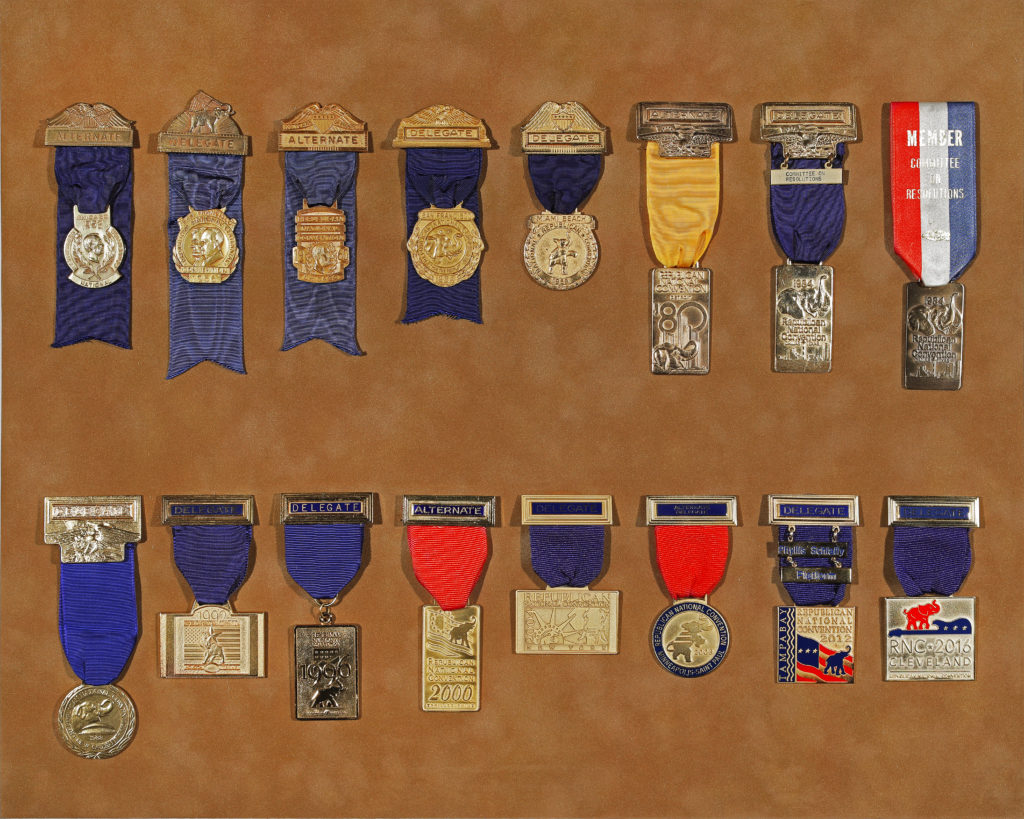
Phyllis attended and played an active part in every Republican National Convention from 1952 through 2016. She served as a delegate to nine of those conventions and as an alternate delegate to four.
1967
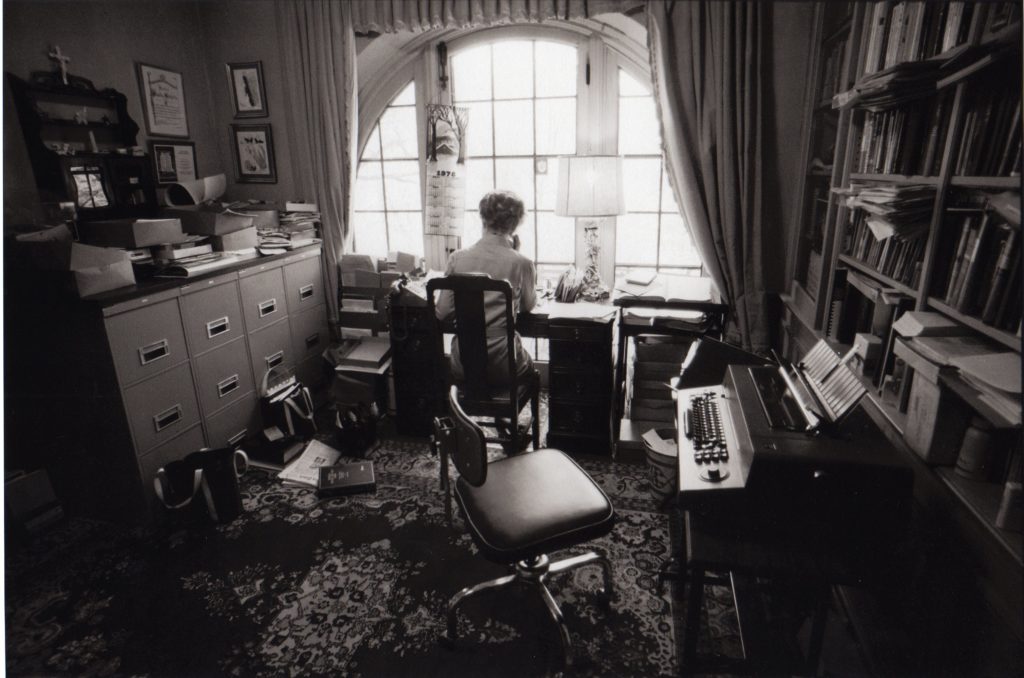
Phyllis began writing and distributing her monthly Phyllis Schlafly Report in August 1967. Over fifty years, she published more than six hundred issues, making it the longest continuously running conservative commentary publication in American history.
December 8, 1971
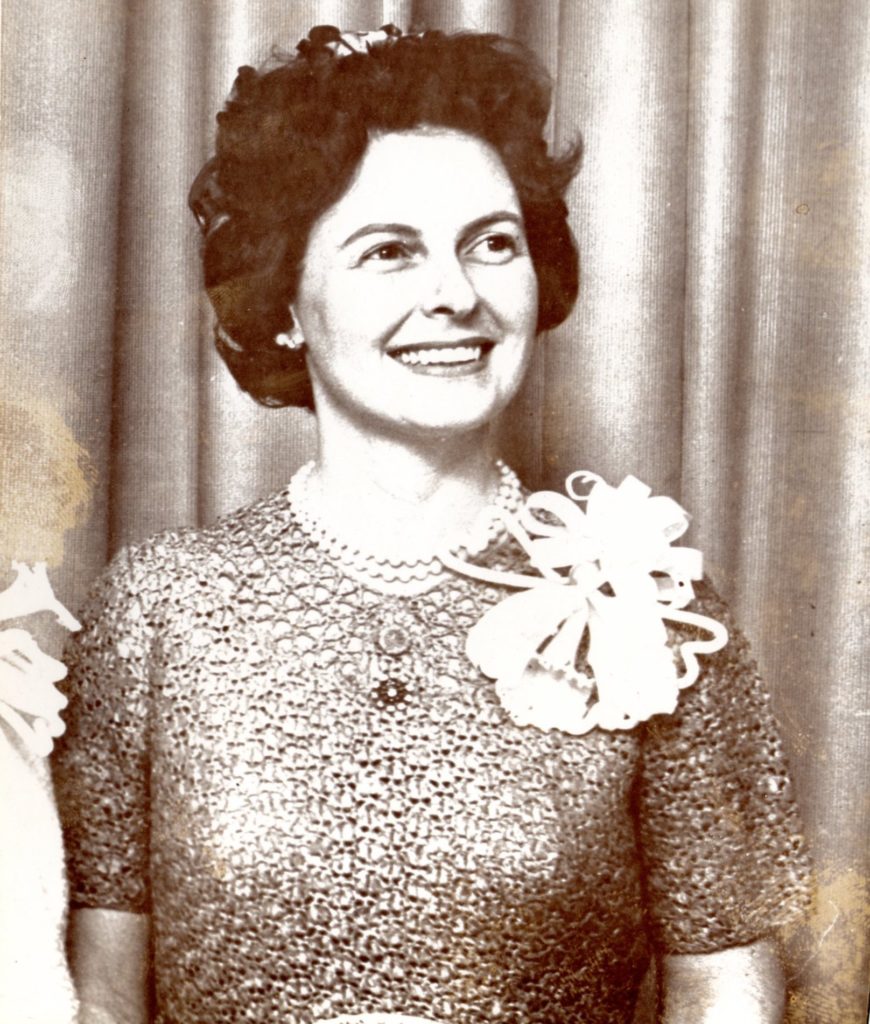
Phyllis’s first public debate was held in a reading lounge for college students in Darien, Connecticut on December 8, 1971. The topic was “The Role of Women and the Equal Rights Amendment.”
February, 1972
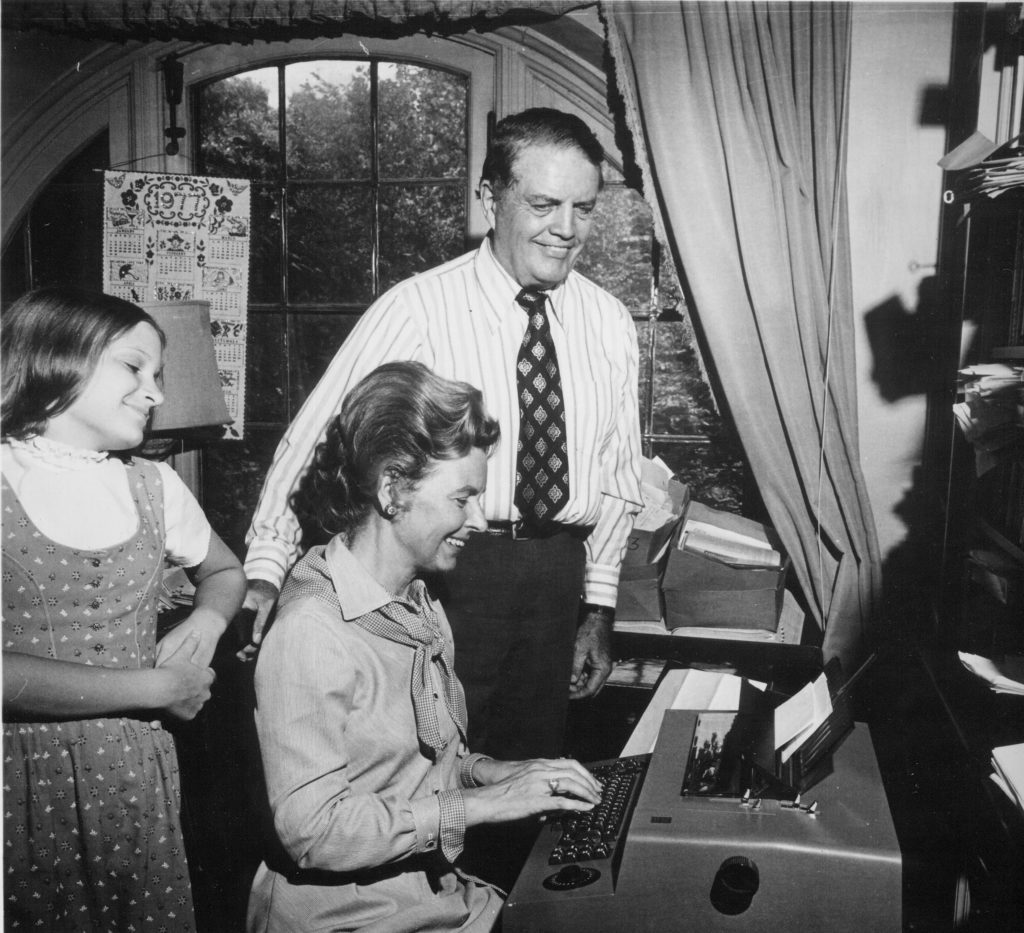
Phyllis published her landmark issue of the Phyllis Schlafly Report entitled “What’s Wrong With Equal Rights For Women?” in February 1972. Over the next decade, Phyllis would write dozens more issues on the subject of the Equal Rights Amendment.
May 9, 1972
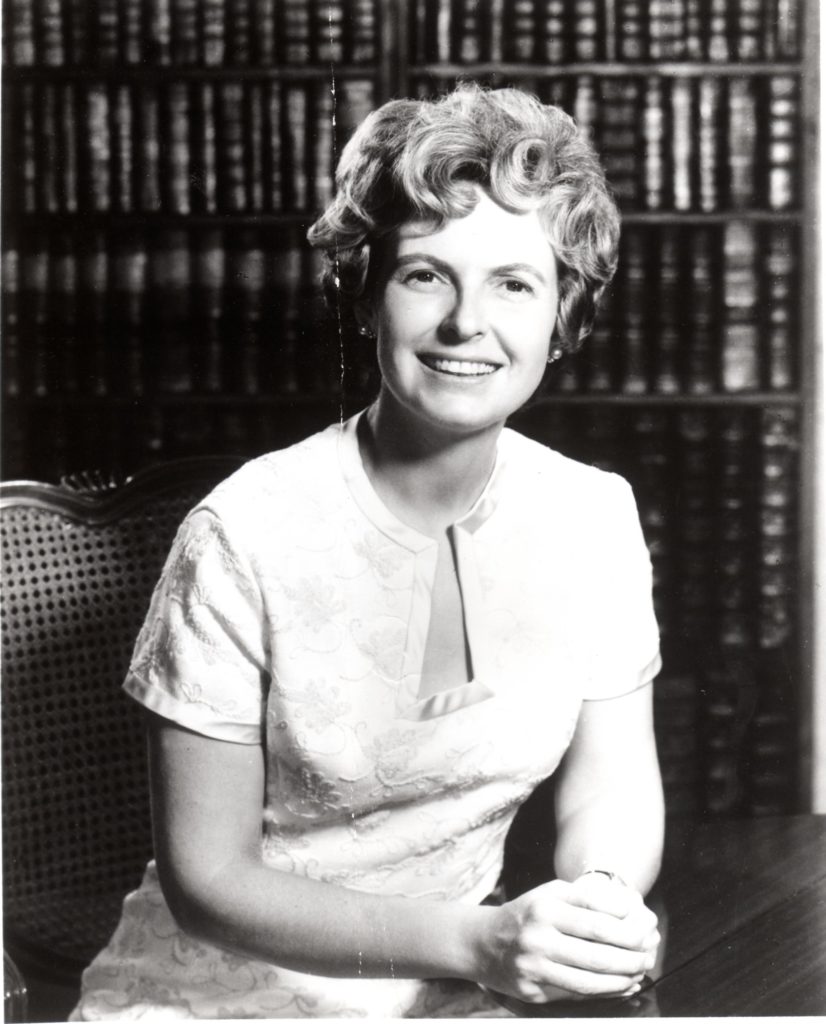
Phyllis made her first of dozens of trips to the Illinois State Capitol to fight ERA on May 9, 1972. She had four of her closest friends with her, including the “naturally nonassertive” Margaret Gaul. When Phyllis saw how passionately Margaret told legislators to vote against ERA, she noted “that was the first indication I had that ERA could motivate women in a way that no other issue ever had.”
May 11, 1972
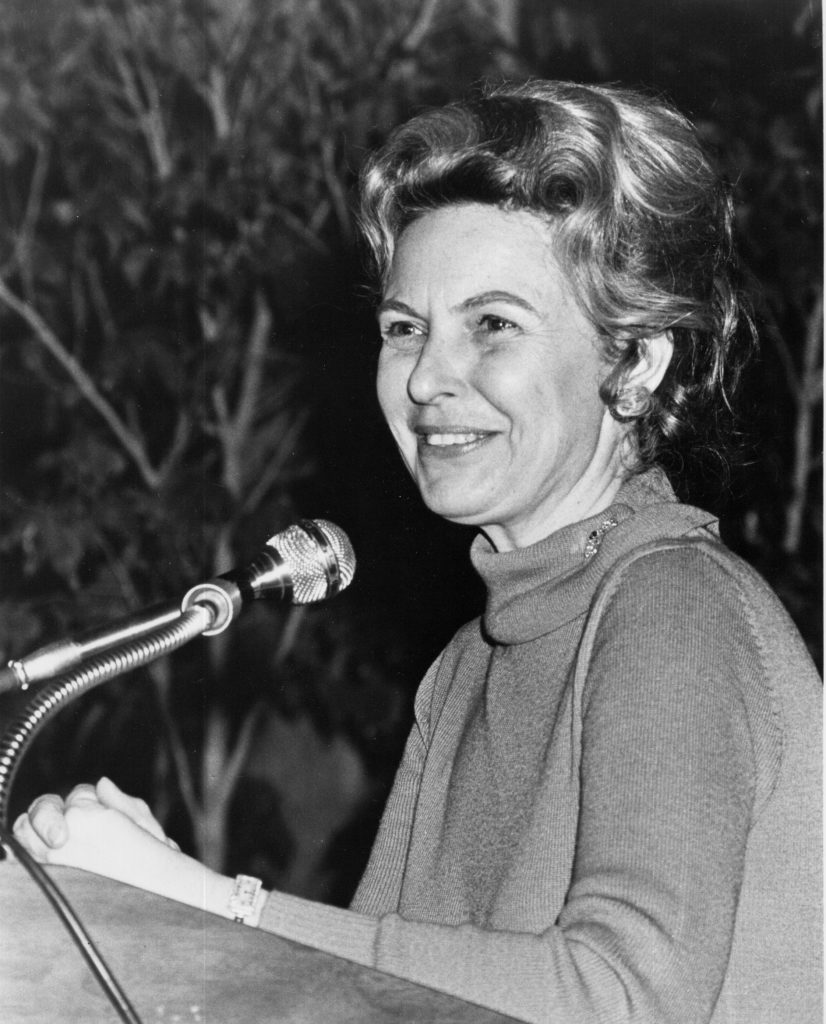
Phyllis was asked to take part in her first televised debate with a lawyer on May 11, 1972. She later wrote of this experience “I was scared. I managed to hold my own, but I won’t say that I had all the answers.”
June 6, 1972
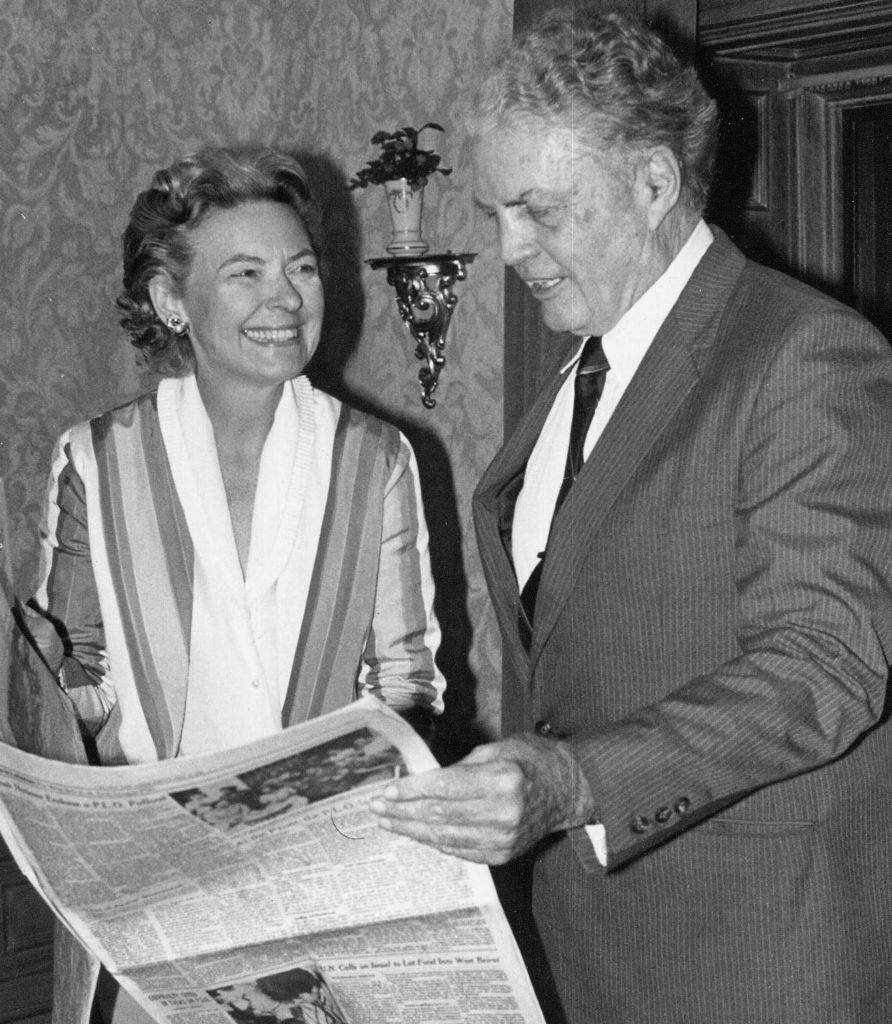
Phyllis had her husband Fred be the leadoff witness in Illinois’s first hearing on ERA on June 6,1972 since “I was afraid to be a witness because I’m not a lawyer.”
September 26-27, 1972
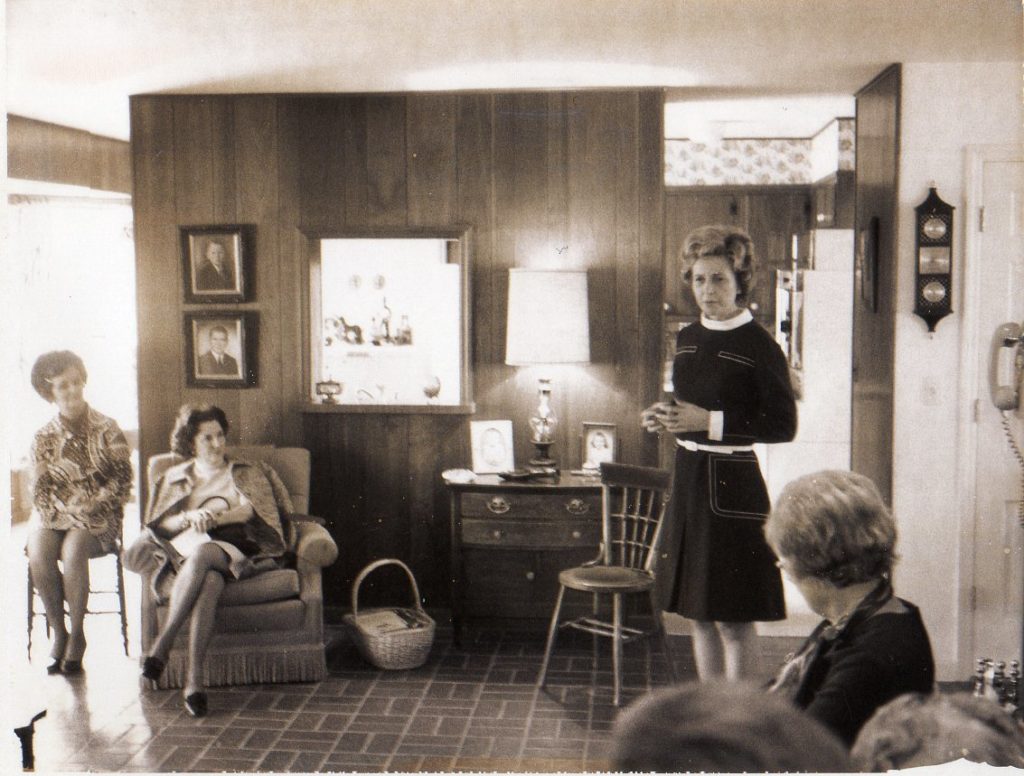
Phyllis organized women into a coalition called STOP ERA. “STOP” was an acronym for “Stop Taking Our Privileges.” She held her first STOP ERA conference on September 26 and 27, 1972.
March 13, 1973
May 1, 1973

Phyllis took a lot of abuse from very hateful feminists. At a famous debate between Phyllis and Betty Friedan on May 1, 1973, Betty said “I would like to burn you at the stake. . . . I consider you a traitor to your sex, an Aunt Tom.”
November, 1977
1978
March 22, 1979
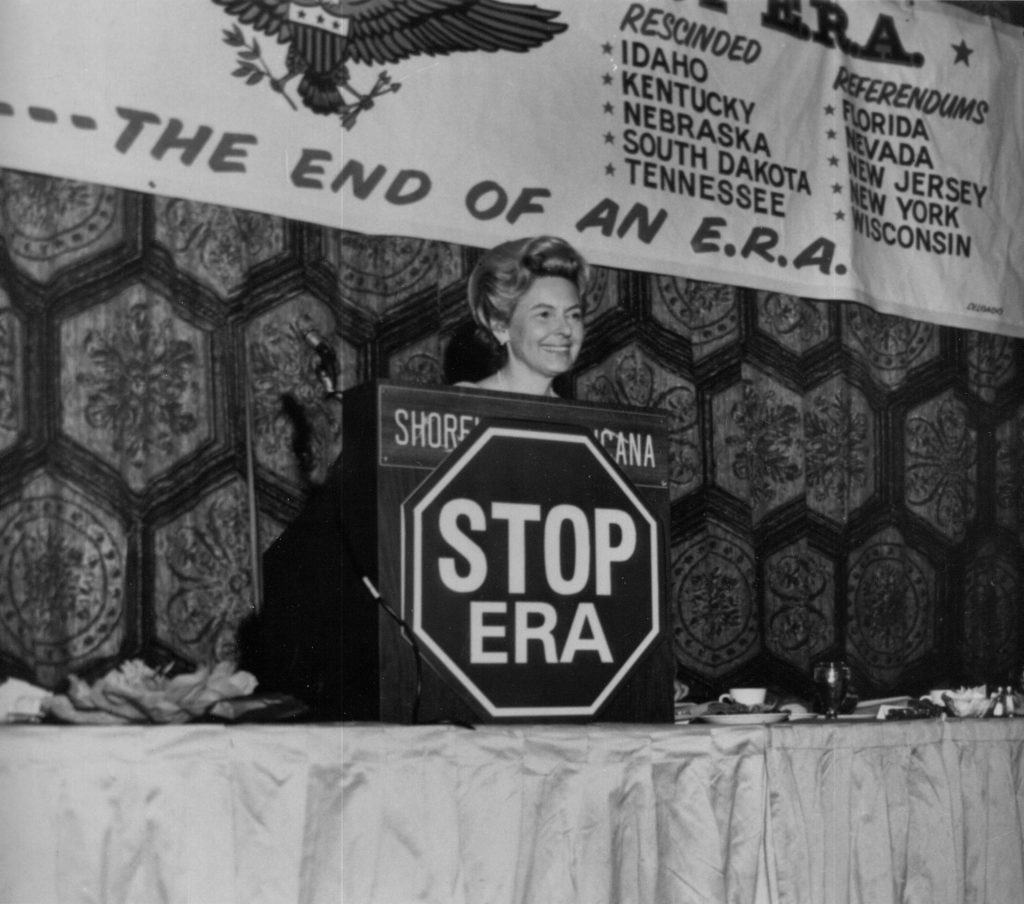
Phyllis and the women of STOP ERA received a bomb threat on March 22, 1979, which was the day ERA expired. In spite of that, they held a large gala dinner to celebrate their victory.
April 21, 1979
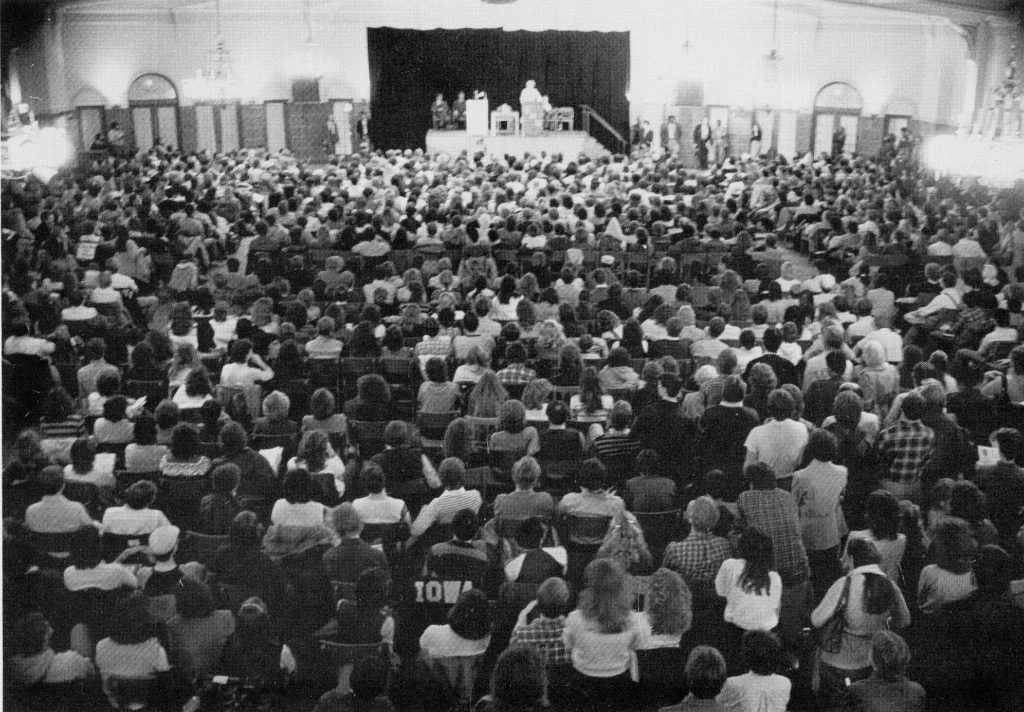
Phyllis debated Bella Abzug at Centre College in Danville, Kentucky on April 21, 1979. Phyllis recounted that “The hour before the speech, the students were in negotiations with [Abzug]; she was refusing to be on the platform, with me. She finally agreed; but I was made to go first; and the panel to question us afterwards was all on her side.”
June 30, 1982
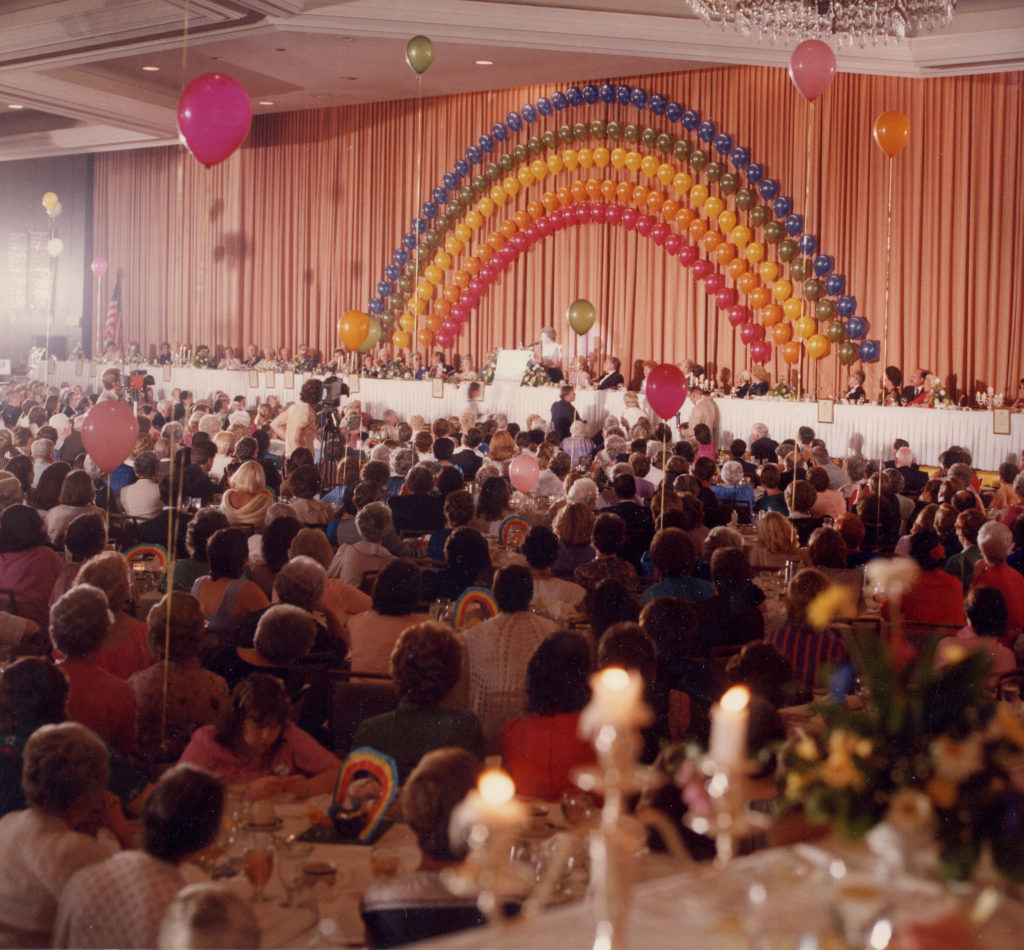
Phyllis argued that an attempt by Congress to extend the deadline for ERA’s ratification from 1979 to 1982 was unconstitutional. Many contemporary legal scholars agree. Nevertheless, the ERA expired again on June 30, 1982 with no more ratifications than it had in 1979.
March 21, 1983
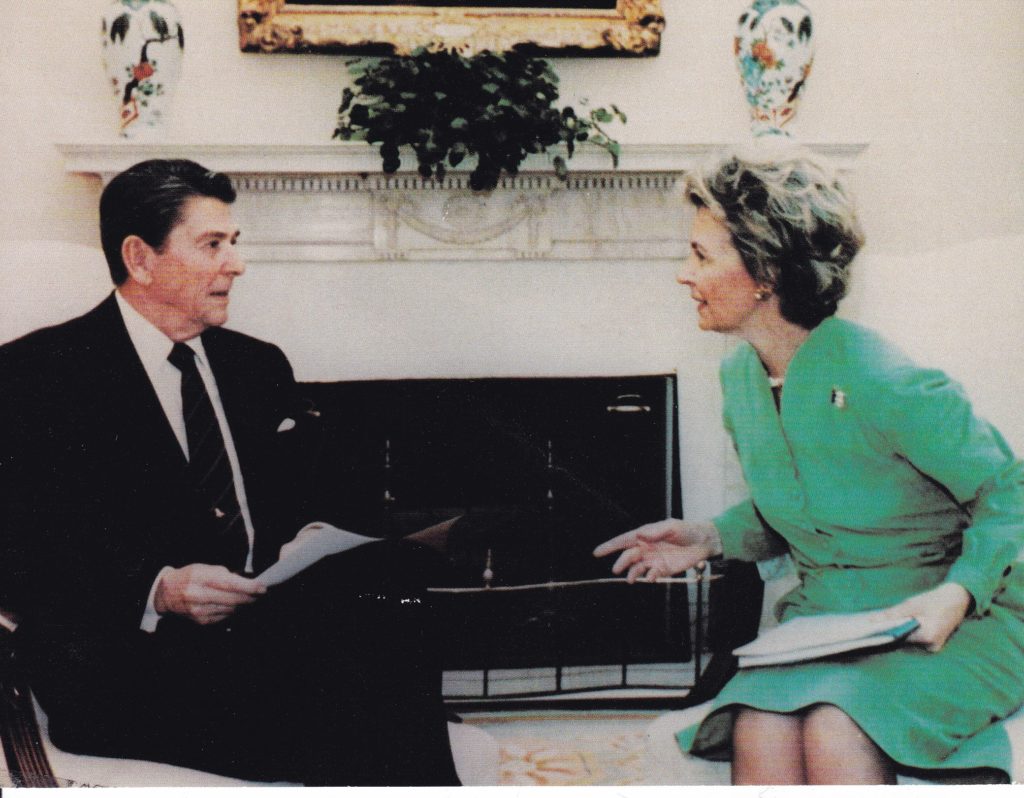
Phyllis visited with President Ronald Reagan in the Oval Office on March 21, 1983. He wrote of the encounter “Phyllis Schlafly came by. She’s darned effective. Her plan to counter the new ERA campaign is brilliant.”
March 11, 2016
September 5, 2016
2017-2020
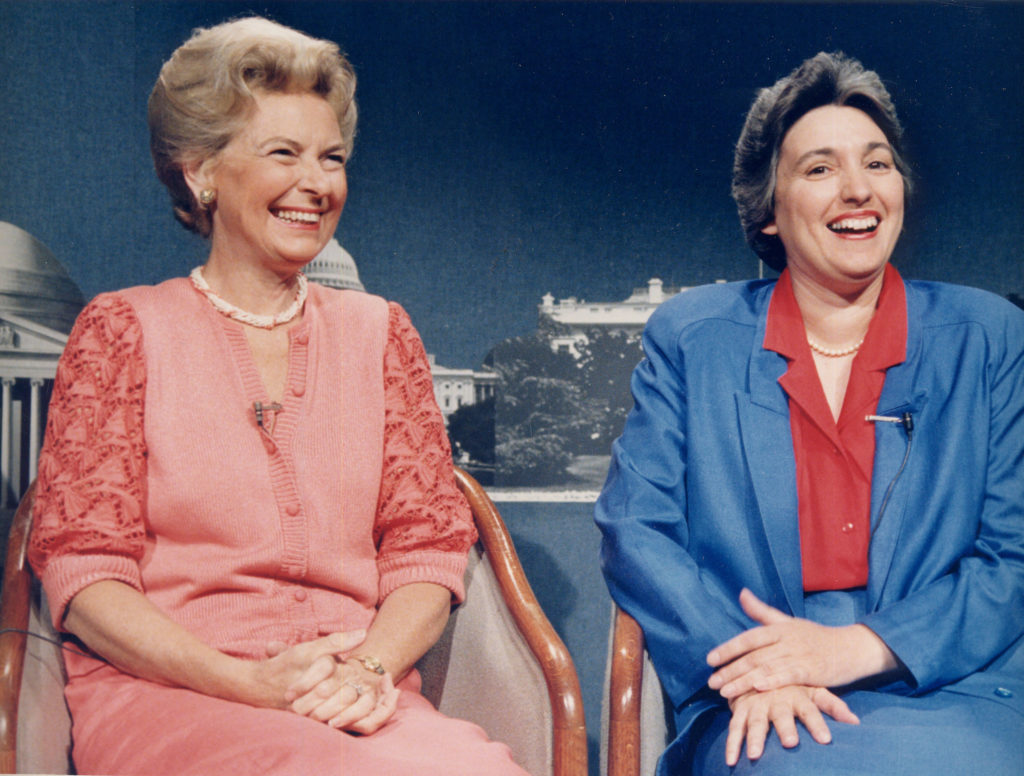
Nevada “ratified” ERA in 2017, followed by Illinois in 2018 and Virginia in 2020. They claim the deadline in ERA is invalid, but legal experts disagree.
